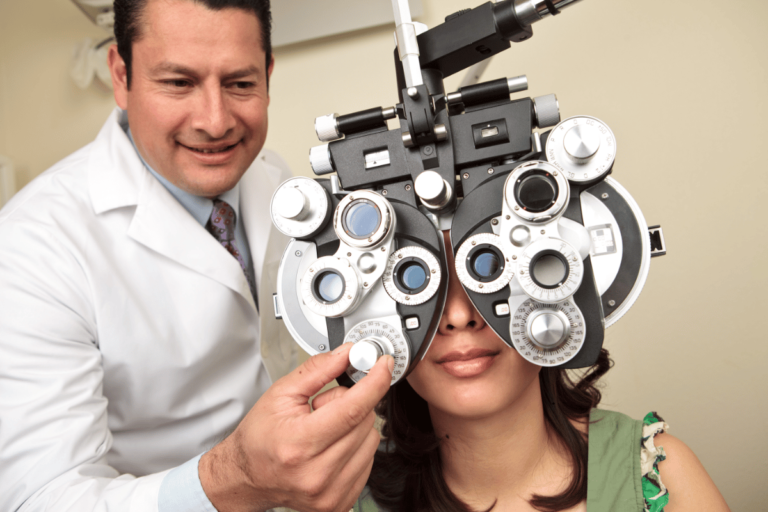Pathologist Job Description
As a pathologist, you review tissue samples, conduct tests, and communicate findings to healthcare providers. With an average salary of $200,000 annually, this field assures steady growth and chances for specialization and progress. Expertise in diagnostics, communication, attention to detail, and problem-solving are key for success. The tools used, like microscopes and autoclaves, aid in precise analysis. Specializations such as forensic or pediatric pathology offer paths of interest. The field is projected to expand due to medical advances and an aging population, shaping a dynamic career landscape. Explore deeper to uncover more about the role of a pathologist.
Key Takeaways
- Analyzing tissue samples and conducting diagnostic tests to identify abnormalities.
- Communicating findings to healthcare providers for suitable treatment options.
- Specializations available in areas like forensic, pediatric, neuropathology, and dermatopathology.
- Utilizing tools like microscopes, autoclaves, and calibrators for accurate results.
- Continuous learning and research opportunities through case studies for career progression.
Pathologist Overview
If you're considering a career as a pathologist, it's essential to understand the basic pathologist overview to grasp the responsibilities and duties involved in this medical profession. Pathologists typically enjoy a high level of job satisfaction as they play an important role in diagnosing diseases and contributing to patient care. The salary expectations for pathologists are generally quite favorable, offering a competitive compensation package due to the specialized nature of the work.
When it comes to work-life balance, being a pathologist can be demanding, especially during residency and fellowship training. However, once established in the field, many pathologists have more control over their schedules and can achieve a better work-life balance. Additionally, there are ample career growth opportunities for pathologists, with the chance to specialize in various areas such as forensic pathology, hematopathology, or dermatopathology. Continuous learning and staying updated on advancements in the field are essential for career progression in pathology.
Education and Training
Moving on to the Education and Training required for becoming a pathologist, acquiring the necessary qualifications is a critical step towards establishing a successful career in this field. To become a pathologist, you must complete a Bachelor's degree, preferably in a relevant field such as biology or chemistry. Subsequently, you will need to attend medical school to earn a Doctor of Medicine (MD) or Doctor of Osteopathic Medicine (DO) degree. Following medical school, a residency program in pathology, which typically lasts around four years, is essential to gain hands-on experience and specialized training. Certification by the American Board of Pathology is usually required to practice as a pathologist.
| Education Requirements | Training Programs |
|---|---|
| Bachelor's Degree | Medical School |
| MD or DO Degree | Residency Program |
| American Board of Pathology Certification |
Core Responsibilities
When working as a pathologist, your key responsibilities revolve around analyzing tissue samples and conducting diagnostic tests to determine the cause of diseases. You're tasked with interpreting laboratory results, identifying abnormalities, and communicating findings to healthcare providers to aid in accurate disease diagnosis. In addition to this, you play a vital role in recommending suitable treatment options based on your assessments.
As a pathologist, you also engage in conducting case studies to deepen your understanding of various diseases and their effects on the human body. These case studies not only contribute to your knowledge but also offer valuable insights into potential research opportunities. By delving into research, you can stay abreast of the latest advancements in the field of pathology, leading to improved diagnostic techniques and treatment strategies for patients.
In essence, your primary focus as a pathologist is to provide accurate disease diagnoses, recommend appropriate treatment options, conduct case studies for continuous learning, and seize research opportunities to enhance your expertise in the field.
Specializations in Pathology
Exploring various specializations in pathology can open up diverse career paths and opportunities for professionals in the field. When contemplating a specialization, it's important to select one that aligns with your interests and career goals. Here are four key specializations to explore:
- Forensic Pathology: This specialization focuses on determining the cause of death in cases involving criminal investigations or legal matters. Forensic pathologists work closely with law enforcement agencies and provide expert testimony in court.
- Pediatric Pathology: Pediatric pathologists specialize in diagnosing diseases and conditions that affect infants, children, and adolescents. They play an essential role in the treatment and management of diseases specific to this age group.
- Neuropathology: Neuropathologists specialize in the study of diseases of the nervous system. They diagnose conditions such as Alzheimer's disease, brain tumors, and multiple sclerosis by examining tissue samples.
- Dermatopathology: Dermatopathologists focus on diagnosing skin diseases by examining skin biopsies under a microscope. They play an important role in helping dermatologists provide accurate diagnoses and treatment plans.
Tools and Equipment Used
A pathologist utilizes a range of specialized tools and equipment to conduct diagnostic examinations and analyses. Ensuring the accuracy and efficiency of these tools is vital for effective pathology work. Tool calibration plays a significant role in maintaining precision during examinations, ultimately enhancing pathologist efficiency. Additionally, equipment sterilization is paramount to prevent contamination and ensure reliable results in the lab. By following strict sterilization protocols, pathologists uphold the integrity of their work and the safety of patients.
—
| Tools and Equipment | Purpose | Importance |
|---|---|---|
| Microscopes | Examining tissue samples | Essential for accurate analysis |
| Autoclaves | Sterilizing equipment | Maintains lab hygiene |
| Calibrators | Ensuring tool accuracy | Vital for precise results |
—
Work Environment
You'll need to be vigilant about lab safety measures to guarantee a secure work environment.
Regular equipment maintenance is vital to uphold the efficiency of the tools used in pathology.
Maintaining a clean and organized workspace is essential for accurate and reliable results.
Lab Safety Measures
In the lab setting, guaranteeing safety measures are strictly followed is essential to protect both yourself and others. When working in a pathology lab, you must prioritize safety by adhering to the following guidelines:
- Personal Protective Equipment: Always wear the appropriate gear like gloves, lab coats, and goggles to shield yourself from potential hazards.
- Emergency Procedures: Familiarize yourself with emergency protocols such as evacuation routes and first aid procedures to respond quickly in case of accidents.
- Hazardous Material Disposal: Dispose of all hazardous materials properly in designated containers to prevent contamination and harm to the environment.
- Ventilation Systems: Ensure that ventilation systems are functioning effectively to maintain air quality and reduce exposure to harmful fumes or particles.
Equipment Maintenance
To guarantee a well-functioning work environment, regular maintenance of equipment is essential for peak performance and safety in the lab. Establishing maintenance schedules ensures that all equipment operates efficiently.
Conducting troubleshooting when issues arise helps prevent downtime and delays in testing processes. Additionally, staying updated on equipment upgrades is vital to enhance capabilities and maintain accuracy in results.
Calibration of instruments is a key aspect of maintenance to ensure the precision and reliability of test outcomes. By adhering to maintenance protocols and promptly addressing any malfunctions, pathologists can work in a safe and productive environment, supporting accurate diagnoses and effective patient care.
Job Outlook and Salary
When contemplating a career as a pathologist, it's crucial to recognize that the job outlook is favorable, with employment projections showing steady growth in the field.
The median annual salary for pathologists is competitive, offering a lucrative compensation for those in this profession.
Understanding these aspects can help you make an informed decision about pursuing a career as a pathologist.
Employment Projections
For pathologists, understanding the job outlook and salary expectations is essential for planning your career path effectively. When it comes to employment projections in the field of pathology, consider the following:
- The job market for pathologists is expected to show steady growth, driven by advancements in medical technology and an aging population.
- Trends indicate an increasing demand for specialized pathologists in areas such as molecular pathology and forensic pathology.
- Career growth opportunities are promising, especially for pathologists willing to pursue subspecialties or research positions.
- Pathologists who stay updated with the latest developments in the field are likely to have more opportunities for career advancement.
Median Annual Salary
Understanding the job outlook and salary expectations for pathologists is essential for making informed career decisions, with the median annual salary being a key factor to take into account. The average salary for pathologists is around $200,000 per year, making it a lucrative career choice.
In addition to the attractive income, the field of pathology is expected to experience steady career growth in the coming years. With advancements in medical technology and an aging population increasing the demand for medical services, pathologists are likely to see a rise in job opportunities.
Pursuing a career in pathology not only offers a generous salary but also promising prospects for professional development and job security.
Pathologist Skills and Qualities
Consider what makes a skilled pathologist stand out in their field. To excel in this profession, you must possess a unique set of skills and qualities that set you apart. Here are some key attributes that define a successful pathologist:
- Diagnostic Accuracy: The ability to accurately interpret test results and diagnose diseases is vital in pathology.
- Communication Skills: Pathologists must effectively communicate complex medical information to other healthcare professionals and patients.
- Attention to Detail: Precision and thoroughness are essential when examining specimens and identifying abnormalities.
- Problem-Solving Skills: Pathologists need to think critically and analytically to solve complex medical puzzles and provide accurate diagnoses.
These skills and qualities not only contribute to a pathologist's success but also ensure the best possible outcomes for patients. Aim to hone these attributes to become a standout professional in the field of pathology.
Frequently Asked Questions
What Are the Most Common Challenges Faced by Pathologists?
Balancing work and personal life is tough. Stress can pile up quickly with heavy case loads. Collaborating with your team can ease the burden. Remember, managing stress and workload is key to success.
How Does Technology Impact the Field of Pathology?
Technology profoundly impacts pathology with AI automation and digital pathology. These advancements streamline processes, enhance accuracy, and facilitate remote collaboration. Embracing these tools enriches diagnostic capabilities, improves patient care, and transforms the field.
Are There Opportunities for Career Advancement in Pathology?
As you navigate your career in pathology, you'll find exciting opportunities for growth. Not only can you expect steady salary growth, but you may also rise to leadership roles, guiding and shaping the field.
Can Pathologists Work Remotely or Part-Time?
Yes, pathologists can work remotely and part-time, offering flexibility in hours and location. This setup allows you to balance work with personal life commitments. Remote work can enhance work-life balance and job satisfaction.
What Are the Ethical Considerations in Pathology Practice?
Exploring the field of pathology, you encounter ethical dilemmas that test your commitment to patient confidentiality. Balancing truth with privacy, your choices shape the course of care, emphasizing integrity in every decision.
Conclusion
Overall, being a pathologist is like being a detective of the medical world, piecing together clues to solve the mystery of a patient's illness.
With your keen eye for detail and analytical mind, you play an essential role in diagnosing diseases and guiding treatment plans.
So, if you're ready to delve into the world of pathology and make a real difference in healthcare, this career path may be just the right fit for you.






